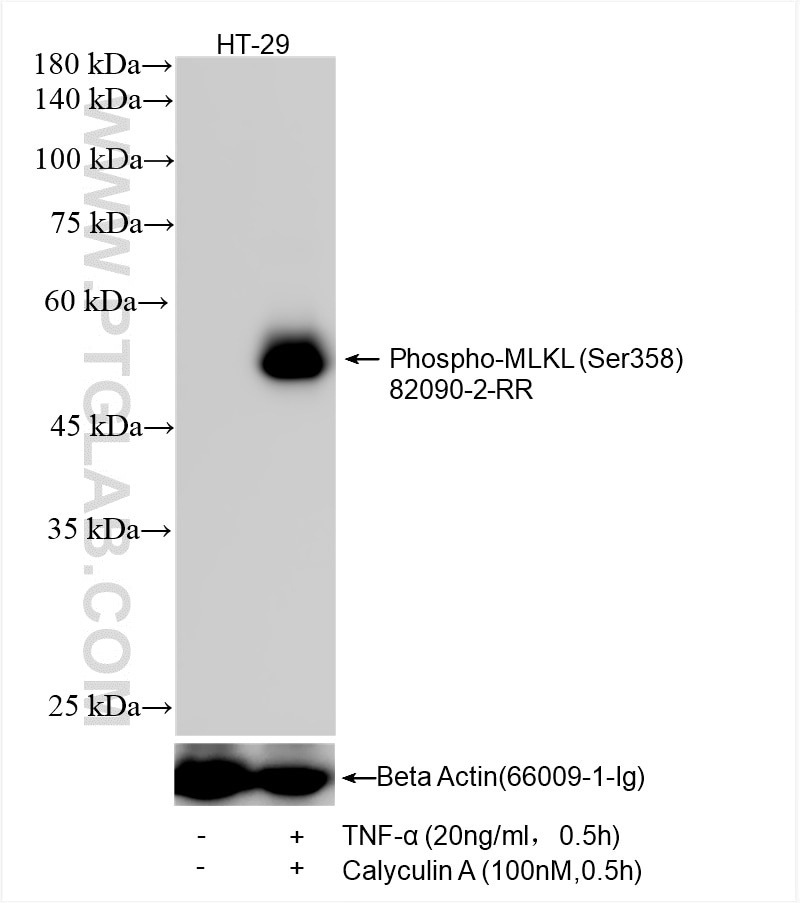Validation Data Gallery
Tested Applications
| Positive WB detected in | TNF alpha and Calyculin A treated HT-29 cells |
Recommended dilution
| Application | Dilution |
|---|---|
| Western Blot (WB) | WB : 1:5000-1:50000 |
| It is recommended that this reagent should be titrated in each testing system to obtain optimal results. | |
| Sample-dependent, Check data in validation data gallery. | |
Product Information
82090-2-RR targets Phospho-MLKL (Ser358) in WB, ELISA applications and shows reactivity with human samples.
| Tested Reactivity | human |
| Host / Isotype | Rabbit / IgG |
| Class | Recombinant |
| Type | Antibody |
| Immunogen | Peptide 相同性解析による交差性が予測される生物種 |
| Full Name | mixed lineage kinase domain-like |
| Calculated molecular weight | 54 kDa |
| Observed molecular weight | 54 kDa |
| GenBank accession number | XM_005255834 |
| Gene Symbol | MLKL |
| Gene ID (NCBI) | 197259 |
| RRID | AB_3670515 |
| Conjugate | Unconjugated |
| Form | Liquid |
| Purification Method | Protein A purfication |
| UNIPROT ID | Q8NB16 |
| Storage Buffer | PBS with 0.02% sodium azide and 50% glycerol{{ptg:BufferTemp}}7.3 |
| Storage Conditions | Store at -20°C. Stable for one year after shipment. Aliquoting is unnecessary for -20oC storage. |
Background Information
Mixed lineage kinase domain like pseudokinase (MLKL), belongs to the protein kinase superfamily. One common method for inducing necroptosis is by treating cells grown in culture with a mixture composed of TNF-α, a Smac-mimetic, that degrades cellular inhibitors of apoptosis (cIAPs) and the pancaspase inhibitor Z-VAD-FMK. This mixture is abbreviated as T/S/Z. It drives necrosome complex formation and RIPK3-dependent phosphorylation of Thr-357 and Ser-358 located within the C-terminal kinase-like domain of human MLKL. (PMID: 28878015)
Protocols
| Product Specific Protocols | |
|---|---|
| WB protocol for Phospho-MLKL (Ser358) antibody 82090-2-RR | Download protocol |
| Standard Protocols | |
|---|---|
| Click here to view our Standard Protocols |
